Dental crowns are a versatile and effective solution for a variety of dental concerns. Talk to your dentist to see how a crown can improve your smile, oral health, and quality of life!
.svg)
.svg)
.svg)
.svg)
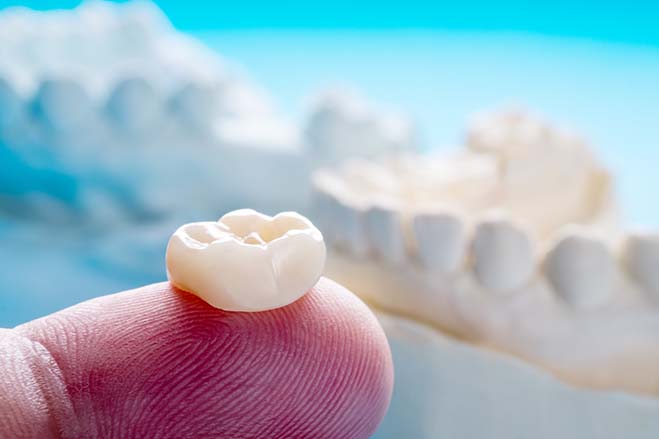
Dental Crowns
A dental crown is a customized tooth-shaped cap that is used to protect, rebuild, and restore the function and appearance of a tooth.
What is a Dental Crown?
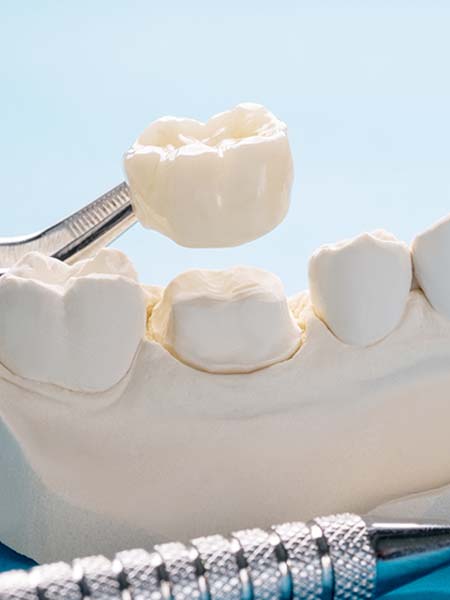
What is a Dental Crown?
The tooth in question will be “prepared” to create space for your crown. The crown will be manufactured in a dental laboratory according to the specific dimensions of this preparation. Once ready, it will be fitted onto your tooth using a cement.
How Do I Know If I Need a Dental Crown?
- Extensive tooth decay: Imagine you’ve been ignoring a cavity for years, and now the decay has eaten away most of your tooth. A filling isn’t enough to restore it. A crown can step in to rebuild the tooth, so you can enjoy your favorite foods without worrying about pain or further damage.
- Cracked or broken teeth: Say you accidentally bit down on an olive pit or a hard candy, and your tooth cracked. A crown acts like a strong bandage, holding the pieces together and keeping the tooth functional.
- Weakened teeth: If you’ve had a root canal due to an infected tooth, it’s left fragile and prone to fractures. A crown can give it the strength it needs to withstand normal chewing and biting.
- Worn-down teeth: Maybe you’re a nighttime teeth grinder or enjoy acidic drinks, and now your teeth are shorter and flatter than they used to be. A crown can restore their natural shape and give you back a confident smile.
- Cosmetic issues: Perhaps you’ve always been self-conscious about a misshapen tooth or severe discoloration that no amount of whitening could fix. A crown can give you the perfect smile you’ve always wanted.
- Protecting large fillings: If you’ve had a massive filling for a deep cavity, you might have noticed it’s starting to chip or feel unstable. A crown can cover the filling, reinforcing the tooth and extending its lifespan.
- After dental implant placement: Imagine losing a tooth due to an accident or decay. Once the implant is placed, the crown on top looks and feels just like your original tooth, letting you eat and smile without hesitation.
- Replacing missing teeth with dental implants: Think about a gap in your smile after losing a tooth. A crown attached to an implant not only restores the gap but also feels like the real thing when you chew or speak.
- Supporting a dental bridge: If you’ve lost multiple teeth in a row, a dental bridge supported by crowns on the adjacent teeth keeps everything stable, restoring your ability to eat and speak properly.
- Preventing tooth damage: Maybe you love chewing ice or have a habit of clenching your jaw during stressful moments. A crown can protect a vulnerable tooth before it develops a serious problem.
- Repairing failed restorations: If an old filling or crown has cracked or fallen out, it’s frustrating and worrisome. A new crown can provide a durable and reliable solution, ensuring your tooth is fully restored.
- To cover developmental abnormalities: If you’ve struggled with underdeveloped teeth or severe discoloration since childhood, crowns can transform your teeth, giving you a natural and healthy appearance.
If you're experiencing any of these issues, consult your dentist to determine if a dental crown is the right option for you.
When to See a Dentist for a Dental Crown
- Intense tooth pain: If you have a persistent toothache that doesn't go away after 2 days.
- Sensitivity to hot or cold: If your tooth becomes sensitive to temperature changes and the sensitivity lasts for more than two weeks.
- Swollen or bleeding gums: If your gums around a tooth are swollen, red, or bleed easily for more than 7-10 days.
- Cracked or chipped tooth: If you notice a visible crack or chip in your tooth.
- Loose or Shifting Teeth: Teeth that feel loose or have shifted from their position could signal advanced gum disease or bone loss, requiring immediate intervention.
- Pain or Pressure When Chewing: Discomfort while eating may indicate a damaged tooth, a cracked filling, or an infection, all of which may benefit from treatment with a dental crown.
- Tooth Discoloration: A tooth turning dark or grey could signify internal damage or infection, requiring restoration to prevent further complications.
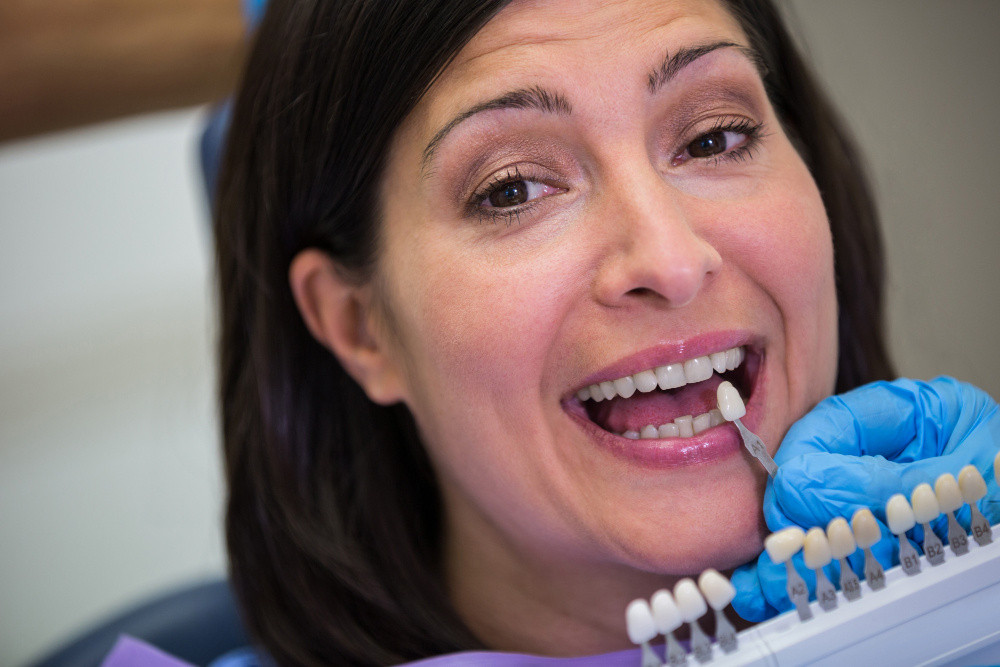
When to See a Dentist for a Dental Crown
- Recurring Bad Breath or Unpleasant Taste: Persistent bad breath or a bad taste in your mouth could indicate an abscess or decay that needs prompt attention.
- Visible Cavities or Damage Around Fillings: If you notice decay forming around an existing filling or a visible cavity, it’s important to address the issue before the damage worsens. However, if the defect or decay is too extensive, then the filling will be prone to failure, and a dental crown may be suggested by your dentist.
- Changes in Gum or Facial Appearance: Swelling in your gums, face, or jaw, or a small bump near the affected tooth, could indicate an infection that requires immediate care.
These symptoms may point to underlying dental issues that could benefit from a crown or other treatment. Early intervention can prevent more extensive damage, save your natural tooth, and preserve your oral health. Don’t delay — consult your dentist at the first sign of trouble.
.png?width=400&height=400&name=rb_15845%20(1).png)
Dental Crowns Benefits

Restore damaged teeth
Dental crowns can fix teeth that are chipped, cracked or worn down. You can chew and speak normally again without worrying about further damage.

Enhance your smile
Crowns can cover discoloured or misshapen teeth, give you a whiter and more even smile. You’ll feel more confident to show off your pearly whites.

Protect weak teeth
If you have a tooth weakened by decay or a big filling, a crown can strengthen it and prevent breakage. This can help you avoid more costly treatments later on.

Improve chewing function
Crowns restore the shape and size of damaged teeth so you can bite and chew comfortably. No more avoiding your favourite foods!

Protect teeth from erosion (wear and tear)
Crowns provide a durable solution to shield teeth that are worn down from acid erosion or grinding, preserving their integrity over time.
.png)
Long-lasting solution
With proper care, crowns can last 5-15 years or more. You’ll enjoy the benefits for years to come.

Cover dental implants
Crowns are used to top dental implants, to create a natural looking replacement for missing teeth. You’ll have a full smile again.

Support dental bridges
A dental bridge is a fixed prosthetic device used to replace one or more missing teeth by bridging the gap between healthy teeth. Crowns can anchor bridges in place, ensuring stability while filling gaps from missing teeth. This helps maintain proper bite alignment and prevents other teeth from shifting.

Protect root canal-treated teeth
After a root canal, a crown can protect the treated tooth from further decay or damage. You’ll save your natural tooth and avoid extraction.

Prevent Tooth Wear from Grinding
For individuals with bruxism (teeth grinding), crowns can act as a protective barrier, preventing excessive wear and further damage to your teeth.

Correct Bite Issues
Crowns can improve your bite by restoring the proper alignment and functionality of damaged or misshapen teeth, reducing jaw discomfort and uneven wear.

Cosmetic Customization
Crowns are custom-made to match the color, shape, and size of your natural teeth, ensuring a seamless and natural appearance.

Preserve Adjacent Teeth
By stabilizing damaged or missing teeth, crowns can prevent additional strain on adjacent teeth, reducing the risk of future dental problems.

Aesthetics for Anterior Teeth
Ceramic crowns are ideal for front teeth due to their ability to closely mimic the natural translucency and color of enamel. Their lifelike appearance ensures a seamless blend with surrounding teeth, making them a preferred choice for restoring a confident and natural-looking smile.

Types of Dental Crowns
At Nuffield Dental, we offer a range of crowns to suit your different needs:
Precious Metal Crowns
Precious metals such as gold, silver, platinum, and palladium, have many suitable qualities for use as a crown.
They are known to be strong, very durable and long-lasting (if well looked after), corrosion-resistant, produce a stellar fit over your tooth and live harmoniously with your partnering tooth.
However, the main drawback of precious metal crowns for many patients is their metallic colour. Therefore precious metal crowns are typically solely recommended for back molar teeth, where they will appear less conspicuous.
Porcelain-Fused-With-Metal Crowns
Porcelain-fused-with-Metal crowns attempt to mask the metallic colour of a metal crown by adding a layer of porcelain over the metal to give a aesthetic, tooth-coloured appearance.
This way, these crowns will be suitable on almost all the teeth in your mouth, even your front ones.
However, they do require the removal of tooth substance than precious metal crowns to accommodate for the additional porcelain. The porcelain is also slightly less durable than metal.
Lithium Disilicate Crowns
Lithium disilicate crowns are a type of full ceramic crown that is tooth-coloured, very natural looking, and have considerable strength and durability.
They can be used on your front, premolar and certain molar teeth. Patients who desire an aesthetic-looking crown, and do not like the idea of having any metal placed in their mouth can have their expectations fulfilled with lithium disilicate crowns.
Such full ceramic crowns can also take advantage of CAD-CAM digital method available for their construction.
Zirconia Crowns
Zirconia crowns are another type of full ceramic crown that is tooth-coloured, with moderate aesthetic properties, but has very high strength and durability – you will even be able to stand on one without it breaking!
They tend to be used on premolar or molar teeth, and for patients who do not like the idea of having any metal in their mouth. Similar to lithium disilicate crowns, CAD-CAM digital technology can be used for their construction
Do I Need a Dental Crown?
- Significant tooth decay;
- Significant tooth wear;
- Been broken or chipped significantly;
- Developmental abnormalities, for example teeth that are smaller than usual or under-developed;
- Cracks, to prevent these from propagating and irreversibly damaging your tooth pulp and tooth structure;
- Undergone a Root Canal Treatment (especially your big molar teeth);
- Been lost and replaced with Dental Implants;
- An undesirable colour, shape or alignment and you desire a Smile Makeover.
Do I Need a Dental Crown?

What Does the Procedure Involve?
Stage 1: Consultation and Pre-Treatment
At your crown consultation, your dentist will explore your concerns, thoroughly examine your teeth, and take any necessary X-rays or pulp tests.
You will be informed if any teeth will benefit from having a crown or other treatment options. If a crown has been decided upon, the types of crowns will be discussed and decided upon according to your condition and expectations.
Pre-treatment preparations before having a crown may include:
- Placement of a core filling material to restore large gaps in your tooth that have been damaged and removed from decay, wear, breakage, etc
- Gum contouring to enable the core filling material and crown to be placed securely and successfully over your tooth.
Stage 3: Post-Operative Care
You will be provided instructions on how to look after your crown and further oral health advice. Crowns that are done well and looked after meticulously can potentially last many years or even a lifetime.
Stage 2: Crown Procedure
Once all the pre-treatment preparations have been made, two appointments are needed to complete a crown. The first visit to prepare the tooth and take specific measurements, the second visit to fit the crown.
- Crown Preparation
A single tooth crown preparation takes 30 to 60 minutes. Before starting, the relevant tooth will be numbed with a local anaesthetic (unless your tooth has had a prior root canal treatment). You will hence not feel any pain at all during the whole procedure, solely some pressure and/or vibrations. You may additionally be placed under prior IV sedation or General Anaesthesia depending on your concerns and agreed individualised treatment plan.
Substance is removed from all superficial aspects of your tooth to create space and margins whereby your crown can seamlessly and securely sit upon.
An intraoral scan and mould of the tooth will be taken and sent to a dental laboratory to construct your crown. If you are having a porcelain-fused-to-metal or full ceramic crown, you will be able to select the specific colour you would like your crown to be in with your dentist.
Finally, a tooth-coloured temporary crown is made and fitted over the prepared tooth to protect it whilst your final crown is in the making. It will be beneficial to avoid biting on hard or chewy foods over the temporary crown.
Re-visit your dentist as soon as possible if this temporary crown were to chip or come off prematurely.
- Crown Fit
Your crown fit appointment will last 15 to 30 minutes.
The temporary crown is removed and your final finished permanent crown will be tried on. This is to ensure that it is – well-fitting, harmonious with your bite and neighbouring teeth, and that you are happy with its colour and overall appearance.
Some minor refinements may need to be made. Once finalized, your crown will be sealed in place on your tooth with a cement. Local anaesthetic is often not needed for this part of the procedure.
Dental Crown Risks
- Infection: There's a small chance of infection after crown placement. Your dentist will take precautions, but proper oral hygiene is crucial to prevent this.
- Sensitivity: You might experience temporary sensitivity to hot and cold after getting a crown. This usually subsides within a few weeks.
- Impact on Adjacent Teeth: During the preparation of a tooth for a crown, there is a slight chance that neighboring teeth could be affected. However, your dentist will take careful measures to minimize this risk and protect the surrounding teeth.
- Gum Irritation: The area around the crown may feel tender or irritated initially. This is typically temporary and improves as the gums heal, but persistent discomfort should be evaluated by your dentist.
- Bite Issues: If the crown doesn’t fit perfectly, it can cause bite issues or discomfort. Dentists take precise measurements, but adjustments may sometimes be necessary to ensure a proper fit.
By understanding these risks and following your dentist’s aftercare instructions, you can ensure the longevity of your crown and reduce the likelihood of complications. Always communicate any concerns or symptoms with your dentist promptly.
Dental Crown Complications
- Crown Damage: Crowns, especially porcelain ones, can chip or crack if exposed to excessive force, such as chewing hard foods, ice, or using your teeth as tools. Protect your crown by avoiding these habits and wearing a night guard if you grind your teeth.
- Altered Speech: You may experience slight changes in your speech while adjusting to the new shape and size of your crowned tooth. This is usually temporary and improves as your mouth becomes accustomed to the crown.
- Loose or Dislodged Crown: Over time, the cement holding a crown in place can weaken, causing it to become loose or fall off. If this happens, contact your dentist immediately to have it repaired or replaced. Acting quickly can prevent further damage to the underlying tooth.
- Tooth Decay at the Edges: Although crowns protect the visible part of your tooth, decay can still occur at the margin where the crown meets the natural tooth. Practicing excellent oral hygiene, including brushing, flossing, and using fluoride toothpaste, significantly reduces this risk.
- Complete Tooth Decay: If a crown doesn’t fit properly, it can trap bacteria and lead to decay. Ensuring a proper fit is essential to prevent these issues and maintain oral health.
Despite these potential complications, dental crowns are a safe and effective solution for most people. A 2020 study found that 75.1% of crowns remained in perfect condition even after seven years.
At Nuffield Dental, we prioritize your oral health by using high-quality materials, advanced techniques, and precise craftsmanship to minimize risks and ensure your crowns last. Our team is committed to delivering long-term results, so you can enjoy a healthy, confident smile with peace of mind.
Dental Crown Cost in Singapore
Dental crowns in Singapore are a good investment in your oral health. The price varies based on factors like material, procedure complexity, and clinic location.
You can expect to pay between SGD $550 and SGD $1,450 per tooth for a dental crown. This wide range reflects the different options available to suit your needs and budget.
Here's a breakdown of average costs:
- Basic porcelain crown: SGD $550 - SGD $750
- High-quality ceramic crown: SGD $800 - SGD $1,100
- Gold or metal alloy crown: SGD $900 - SGD $1,450
Keep in mind that these prices are estimates. Your dentist will provide a more accurate quote after examining your teeth.
Remember to factor in additional expenses like X-rays and consultations. These can add SGD $100 - SGD $200 to your total bill.
When choosing a clinic, don't just focus on price. Look for experienced dentists with good reviews and modern equipment. This can help ensure you get a high-quality crown that lasts for years.
Dental Crown Cost in Singapore
.jpg)
Are There Subsidies for Crowns in Singapore?
Yes, there are subsidies available for dental crowns in Singapore. If you're a Singaporean citizen, you may be eligible for financial assistance through the Community Health Assist Scheme (CHAS).
CHAS offers subsidies for up to 4 permanent crowns per calendar year. The amount you can claim depends on your CHAS card type:
- CHAS Orange card: SGD $84.50
- CHAS Blue card: SGD $127.50
- Merdeka Generation card: SGD $132.50
- Pioneer Generation card: SGD $137.50
It's worth noting that the exact subsidy amount may change, so it's best to check with your dentist or the CHAS website for the most up-to-date figures.
Keep in mind that MediSave typically doesn't cover dental crowns unless they're part of a medically necessary surgical procedure. For most people, routine dental treatments like crowns aren't eligible for MediSave claims.
Are There Subsidies for Crowns in Singapore?
.jpg)
Why Choose Nuffield Dental for Dental Crowns?
- Exceptional Patient Satisfaction: Join countless happy patients who have rated us 4.8 stars on Google! At Nuffield Dental, we prioritize your comfort, ensuring every visit is a personalized, positive experience.
- One-stop, multi-disciplinary dental care centre:Here at Nuffield Dental, we pride ourselves of our personalised oral care for each and every one of our patients. We need to make sure you get all the help you need to make your dental procedures comfortable, accessible and seamless.
- Expert Care from Highly Trained Professionals: Our skilled dental nurses undergo rigorous staff training, including the Dental Surgery Assistant (DSA) programme, equipping them to provide outstanding care and support throughout your treatment journey.
- Comprehensive Pre-Treatment Assessments: Your health and safety are our priority. Before any procedure, we conduct thorough reviews of your medical history and current health to ensure your crown fits seamlessly into a long-term plan for a healthy smile.
- Convenient Accessibility Across Singapore: With 11 strategically located dental clinics, Nuffield Dental makes it easy for you to access top-tier dental care wherever you are.
- Advanced Technology for Superior Results: We utilize cutting-edge equipment and the latest dental techniques to craft crowns that are both durable and natural-looking, giving you a smile you’ll love to show off.
- Customized Care Tailored to You: No two smiles are the same! Our team designs crowns that perfectly match your teeth’s size, shape, and color for a flawless, natural appearance.
- Trusted Expertise in Restorative Dentistry: With over a decade of experience serving patients, Nuffield Dental combines professionalism with genuine care to deliver long-lasting results you can rely on.
Dental Crown Vs Implant
Crowns are like a cap that fits over damaged teeth, protecting and reshaping them while keeping the natural tooth underneath. Implants replace missing teeth entirely with a metal post in the jawbone and a false tooth on top.
Crowns are good for cracked or weakened teeth, faster and more affordable than implants. Implants are good for missing teeth, more natural looking and feeling but more expensive and longer treatment time. Your dentist will consider your individual needs, oral health, budget and time frame to recommend what’s best for you.
| Aspect | Crown | Implant |
| Purpose | Covers damaged tooth | Replaces missing tooth |
| Procedure | Non-surgical | Surgical |
| Lifespan | 10-15 years | 20+ years |
| Cost | Lower | Higher |
.jpg?width=749&height=500&name=7725%20(1).jpg)
Crowns Vs Veneers
A crown is like a helmet that covers the whole tooth, used for weak or damaged teeth that need support. Veneers are thin shells that cover the front of the tooth, used for cosmetic purposes.
Crowns are about function, veneers are about aesthetics. Crowns cover the whole tooth, veneers cover just the front. Crowns are thicker and require more tooth prep, veneers are thinner and require less. Crowns are more durable and long lasting.
| Feature | Crown | Veneer |
| Purpose | Restore function | Improve aesthetics |
| Coverage | Entire tooth | Front surface |
| Thickness | Thicker (about 2mm) | Thinner (about 1mm) |
| Durability | More durable | Less durable |
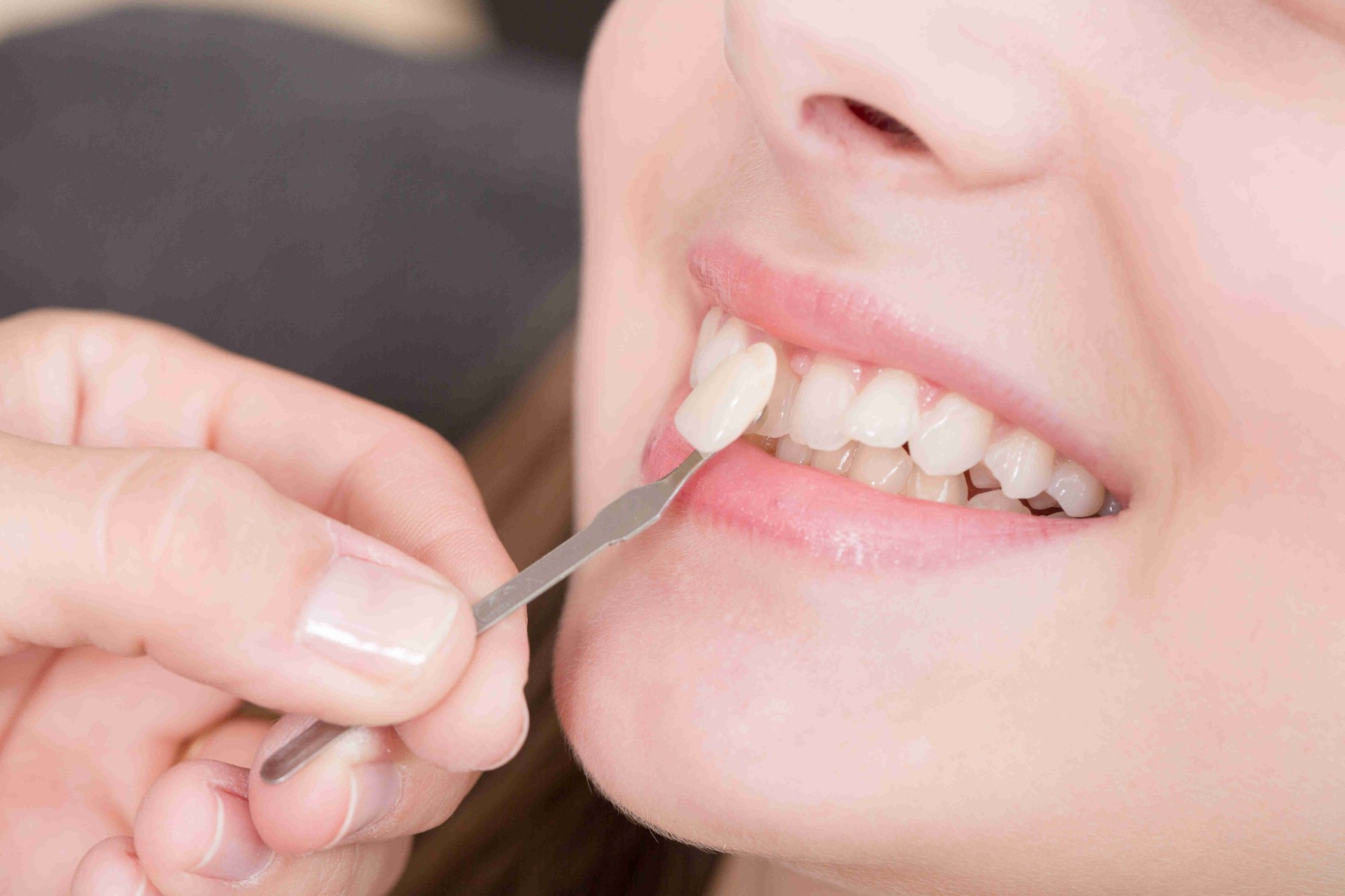
Crowns Vs Bridges
A crown covers one tooth, a bridge replaces one or more. Crowns are like caps for teeth that are badly decayed, cracked or weakened. Bridges use false teeth anchored to adjacent teeth or implants to fill gaps caused by injury, decay or gum disease.
Both are usually made from porcelain to match your natural teeth, to improve your smile and oral function. It depends on whether you need to restore a damaged tooth or replace missing ones. Your dentist will assess your oral health and recommend the best option.
| Feature | Crown | Bridge |
| Purpose | Cover a damaged tooth | Replace missing teeth |
| Supported by | Existing tooth structure | Adjacent teeth or implants |
| Number of teeth | Single tooth | Replaces one or more teeth |
.jpg?width=497&height=400&name=10055962_39111%20(1).jpg)
Caring for Your Dental Crown
- Brush your teeth twice daily with fluoride toothpaste: Use a soft-bristled brush to avoid damaging the crown. Gentle circular motions clean effectively without scratching.
- Floss around your crown daily: Removes plaque and food particles from crown edges. Helps prevent decay and gum disease.
- Choose non-abrasive toothpaste: Protects crown surface from scratches. Ask your dentist for recommendations
- Be careful with hard foods: Avoid chewing ice, nuts, and hard sweets. Don't use teeth to open packages
- Limit sticky foods: Reduce eating chewy sweets like toffee. These can potentially dislodge the crown. Opt for less adhesive snacks to avoid issues
- Book regular dental check-ups: Your dentist will examine the crown's condition. Professional cleanings help maintain oral health
- Wear a mouthguard if needed: Protects crown during sports or if you grind teeth. Ask your dentist about custom-fitted options
- Watch for unusual sensations: Contact your dentist if you feel pain or sensitivity. Prompt attention can prevent further issues
- Mind your diet: Limit acidic foods and drinks. These may gradually erode dental materials
Preventing the Need for Dental Crowns
- Brush twice daily: Use a soft-bristled toothbrush and fluoride toothpaste to clean your teeth thoroughly. Pay extra attention to the gumline.
- Floss every day: Remove plaque and food particles between your teeth where your toothbrush can't reach.
- Limit sugary foods: Bacteria love sugar, which can lead to tooth decay. Choose healthier snacks and drink water instead of fizzy drinks.
- Wear a mouthguard: If you play sports or grind your teeth at night, protect them with a custom-fitted mouthguard.
- Don't use your teeth as tools: Avoid opening bottles or packets with your teeth. This can cause chips and cracks.
- Visit your dentist regularly: Book check-ups every six months for professional cleanings and early problem detection.
- Address dental issues promptly: Don't ignore tooth pain or sensitivity. Early treatment can prevent the need for more extensive procedures like crowns.
- Stay Hydrated: Drinking water throughout the day helps wash away food particles, bacteria, and acids that can harm your teeth.
- Use Fluoride Treatments or Rinses: Consider fluoride rinses or treatments, especially if you’re prone to cavities. Fluoride strengthens enamel and helps prevent decay.
Step-by-Step Dental Crown Procedure
- Inlays and onlays: A great choice for teeth that are too damaged for a filling but not quite in need of a crown. They fit snugly into the affected area of your tooth, like a puzzle piece.
- Veneers: Might be right for you if you're dealing with cosmetic issues rather than decay. These thin ceramic shells are custom-made to cover the front of your teeth, hiding chips, cracks, and stains.
- Extraction followed by a dental implant: For badly decayed or broken teeth, this could be the best route. This option replaces the entire tooth with an artificial one that looks and functions like natural teeth.
- Dental bonding: Another alternative to crowns. It uses a tooth-coloured resin to repair small chips or cracks. It's quick, painless, and can often be done in one visit.
- Enamel shaping: Can sometimes fix minor imperfections without the need for a crown. Your dentist gently removes small amounts of enamel to improve the tooth's shape.
Dental Crown Before and After

Regulations prohibit us from posting before & after photos online. Visit our clinic to view them and discuss your needs with our dentists.
FAQs
1. How Long Do Dental Crowns Last?
Dental crowns are designed to be durable and long-lasting, like a faithful companion for your teeth. With proper care and regular dental checkups, they can last anywhere from 5 to 15 years, and some even longer – sometimes 25 to 30 years or more! Factors that can influence the lifespan of your crown include your oral hygiene habits, diet, and overall health.
2. Is it Painful to Get a Crown?
Don't worry, getting a dental crown is usually not a painful experience. Your dentist will ensure your comfort by numbing the area with local anesthesia before the procedure. You might experience some mild discomfort or sensitivity for a few days after, but this is completely normal and temporary.
3. Is it Worth Getting a Dental Crown?
Yes, dental crowns are often a worthwhile investment in your oral health. They protect damaged teeth, restore function, and improve appearance. While extraction might seem cheaper initially, replacing the tooth later can be more costly. Crowns help preserve your natural teeth and prevent alignment issues.
4. Are the materials used for dental crowns safe?
Yes, the materials used in dental crowns are safe and tested for dental use. Common options include porcelain, ceramic, and metal alloys. Your dentist will help you choose the best material based on your needs, ensuring both safety and effectiveness.
5. Can a Dental Crown be Replaced?
Yes, dental crowns can be replaced if they become damaged, worn, or no longer fit properly. This process is similar to getting your first crown.
6. How Long Does it Take to Get a Dental Crown?
Getting a dental crown usually takes two visits. The first appointment involves preparing the tooth and taking impressions. The second visit, typically 1-2 weeks later, is for fitting the permanent crown. However, with advancements in technology like CEREC, some dentists offer same-day crowns.
7. How Should I Care for My Temporary Dental Crown?
Treat your temporary crown with a little extra TLC while you await your permanent one. Avoid sticky or chewy foods that could pull it off, minimize chewing on that side of your mouth, and slide floss out gently instead of lifting it.
8. How long does it take to feel better after a dental crown procedure?
Any discomfort or sensitivity after a crown procedure is usually temporary and should subside within a few days. Over-the-counter pain relievers can help manage any lingering soreness.
9. What is a CAD CAM Crown?
CAD/CAM (Computer-Aided Design/Computer-Aided Manufacturing) technology allows dentists to design, fabricate, and place crowns in a single appointment. This means you can get your new crown and smile confidently in just one visit!
10. Can I Get a Crown After Tooth Extraction?
Yes, a crown can be placed on a dental implant after tooth extraction. The implant acts as an artificial tooth root, and the crown is placed on top to restore the appearance and function of the missing tooth.
11. Are Crowns Better Than Fillings?
Crowns and fillings both have their place in restorative dentistry. Crowns are generally recommended for more extensive damage, while fillings are suitable for smaller cavities. Your dentist will assess your specific needs and recommend the most appropriate treatment.
12. Can a Crowned Tooth Get Cavities?
Yes, even a crowned tooth can still get a cavity at the margin where the crown meets the tooth. Maintaining good oral hygiene is crucial to prevent decay around the crown.
13. I Have Some Crowns That Appear Dark After Some Time in My Mouth. Is There a Problem With the Crown?
The darkening you see around old crowns could be due to several factors, such as gum recession exposing the metal margin of a PFM crown or staining of the crown material. It's best to consult your dentist to determine the cause and discuss any necessary treatment.
14. Can I Brush My Teeth Right After Getting a Crown?
Yes, you can brush your teeth as usual after getting a crown. In fact, maintaining good oral hygiene is essential for the longevity of your crown.
15. What Happens if I Swallow a Dental Crown?
If you accidentally swallow a dental crown, don't panic! In most cases, it will pass through your digestive system without any problems. However, it's always a good idea to contact your dentist or doctor for advice.
16. Which Crown is Better Ceramic or Metal?
The choice between ceramic and metal crowns depends on various factors, including the location of the tooth, aesthetics, and functional needs. Ceramic crowns offer a more natural appearance, while metal crowns are known for their strength and durability. Your dentist will help you choose the best option for your specific situation.
17. What Are "Onlays" and "3/4 Crowns?"
Onlays and 3/4 crowns are types of dental restorations that are more extensive than fillings but less extensive than full crowns. They cover a portion of the tooth's chewing surface, providing strength and protection while preserving more of the natural tooth structure.
18. Can I Whiten My Dental Crown?
No, dental crowns cannot be whitened like natural teeth. If you’re considering teeth whitening, discuss this with your dentist before getting a crown to ensure a color match.
19. Do Dental Crowns Require Special Maintenance?
Crowns don’t require special maintenance beyond regular brushing, flossing, and dental check-ups. However, take care to clean the gumline to prevent decay around the crown's edges.
20. Do Dental Crowns Affect Speech?
Initially, you might notice slight changes in speech, especially with front teeth crowns, but this typically resolves as you adjust.
21. Can Crowns Be Repaired if They Crack?
Minor chips or cracks in a crown may be repaired using composite resin. However, severely damaged crowns often require replacement.
22. Can I Eat Normally with a Dental Crown?
After getting a dental crown, you can eat normally, but it's advisable to avoid hard or sticky foods for the first 24 hours to allow the cement to set properly.
23. What Problems Could Arise with a Dental Crown?
Potential problems with dental crowns include sensitivity, discomfort, or damage to adjacent teeth during preparation.
The Nuffield Dental Clinic Network In Singapore
Seletar Dental
Nuffield Dental Seletar
Greenwich V
1 Seletar Road #01-07/08
Singapore 807011

Kovan Dental
Nuffield Dental Kovan
Simon Plaza
2 Kovan Road #01-03
Singapore 548008

Serangoon Dental
Nuffield Dental Serangoon Gardens
Serangoon Garden Estate
57 Serangoon Garden Way
Singapore 555953

Siglap Dental
Nuffield Dental Siglap
The Domain
914 East Coast Road #01-03
Singapore 459108

Bedok Dental
Nuffield Dental Simpang Bedok
East Village
430 Upper Changi Road #01-64
Singapore 487048

Holland Village Dental
Nuffield Dental Holland Village
7 Holland Village Way #03-16
Singapore 275748

Jurong East Dental
Nuffield Dental Westgate
Westgate
3 Gateway Dr #04-32
Singapore 608532

HarbourFront Dental
Nuffield Dental HarbourFront
HarbourFront Centre
1 Maritime Square #02-64A
Singapore 099253

Novena Dental
Nuffield Dental Novena
Novena Medical Centre
10 Sinaran Dr #09-26
Singapore 307506

Orchard Dental
Nuffield Dental Jewel
Wheelock Place
501 Orchard Road #05-01
Singapore 238880

Raffles Place Dental
Nuffield Dental Raffles Place
One Raffles Place
1 Raffles Place #05-19
Singapore 048616


Book an Appointment
Fill out the form for any request or questions you have and we will contact you within one working day..


Why Choose Nuffield Dental?
Nuffield Dental is a one-stop, multi-disciplinary dental care centre. At Nuffield, we put you first. We believe in providing personalised service for each patient.
Nuffield Dental is a one-stop, multi-disciplinary dental care centre. Here at Nuffield Dental, we pride ourselves of our personalised oral care for each and every one of our patients. We need to make sure you get all the help you need to make your dental procedures comfortable, accessible and seamless.
Our dentists have a special interest in prosthodontic treatments and are accredited dental providers who have been helping patients achieve confident smiles.
Articles
The newest and best lifestyle articles selected by our editorial team.
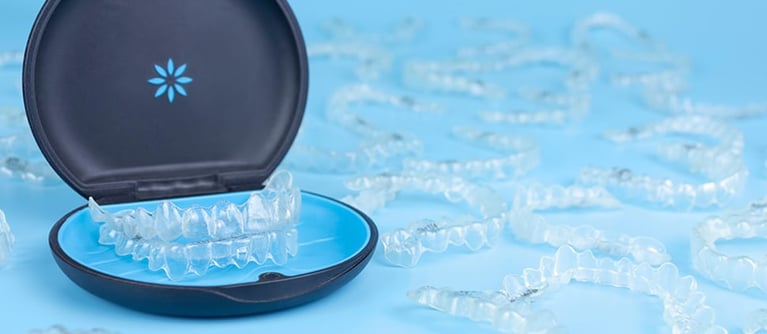
- 4 Jan 2023
- 4 mins read
- Cosmetic Dentistry, invisalign, zenyum, invisible braces, clear aligners
Traditional braces have done wonders for millions of people around the world, but the new generation of clear aligners are here to step up the game....
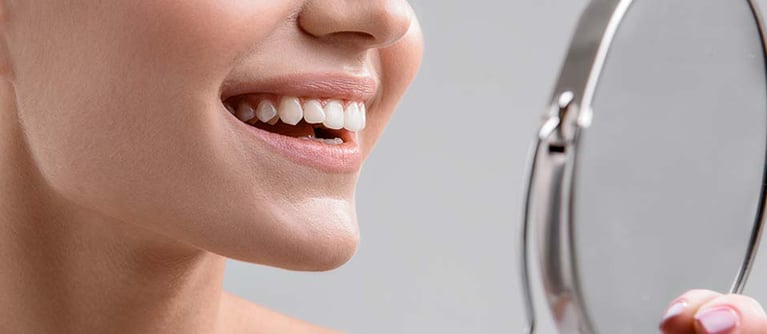
- 21 Dec 2022
- 4 mins read
- Dental Veneers, veneers, dental crown, tooth crown
What are Veneers? Veneers are thin, tooth-coloured layers that are applied to the surface of teeth to improve their appearance. It is a painless...
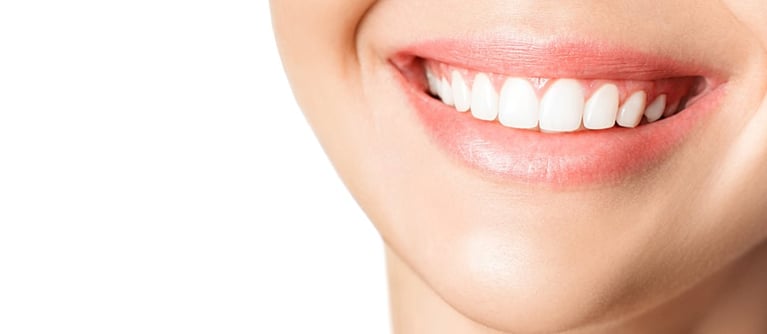
- 1 Dec 2022
- 4 mins read
- Dental Veneers, teeth whitening, Cosmetic Dentistry, veneers, composite veneer bonding
What is cosmetic dentistry? Not blessed with straight, pearly white teeth? Cosmetic dentistry can give you that healthy, confident smile! This dental...
.png?width=2223&height=447&name=Background%20(4).png)

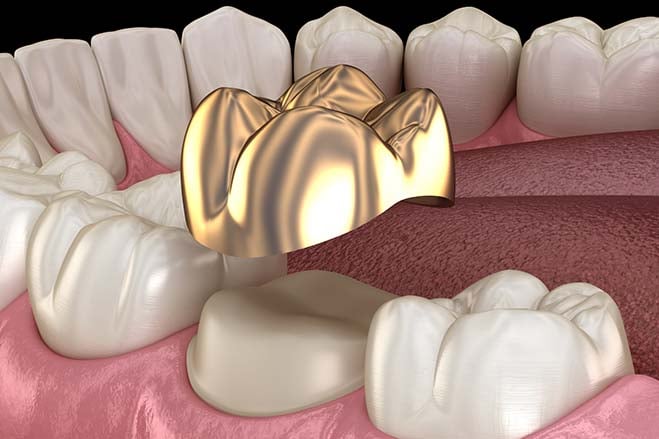
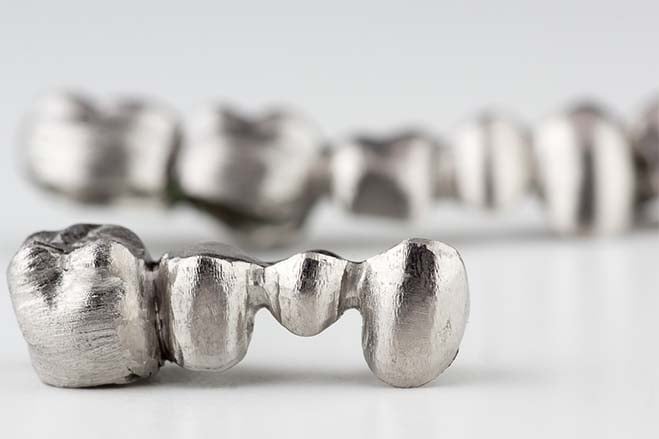
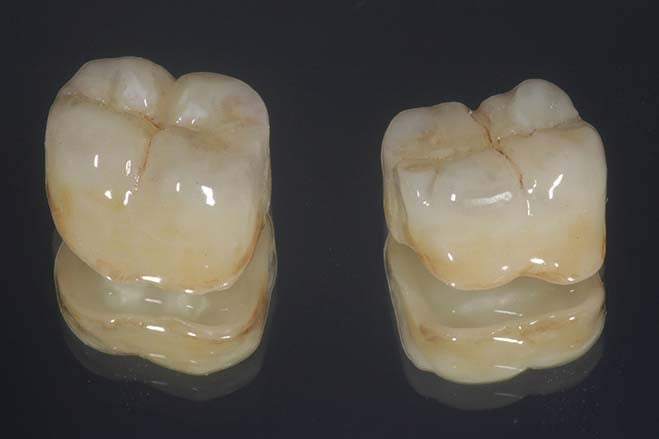
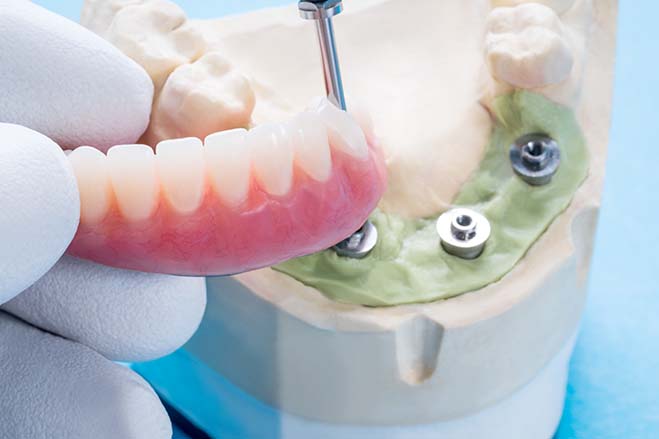
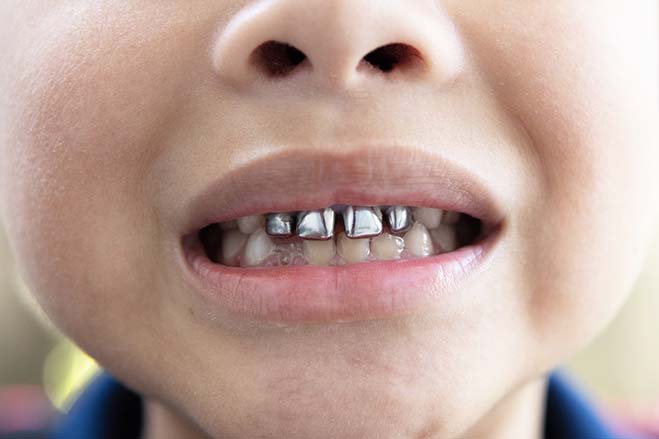
.png)

.png)



